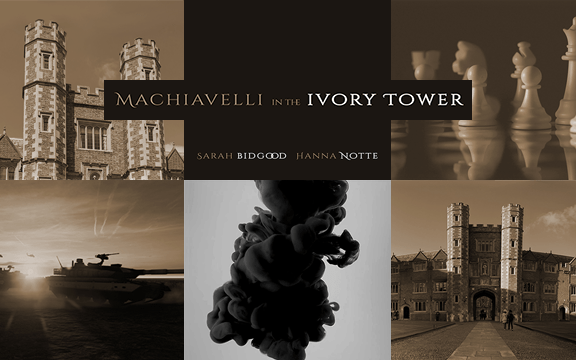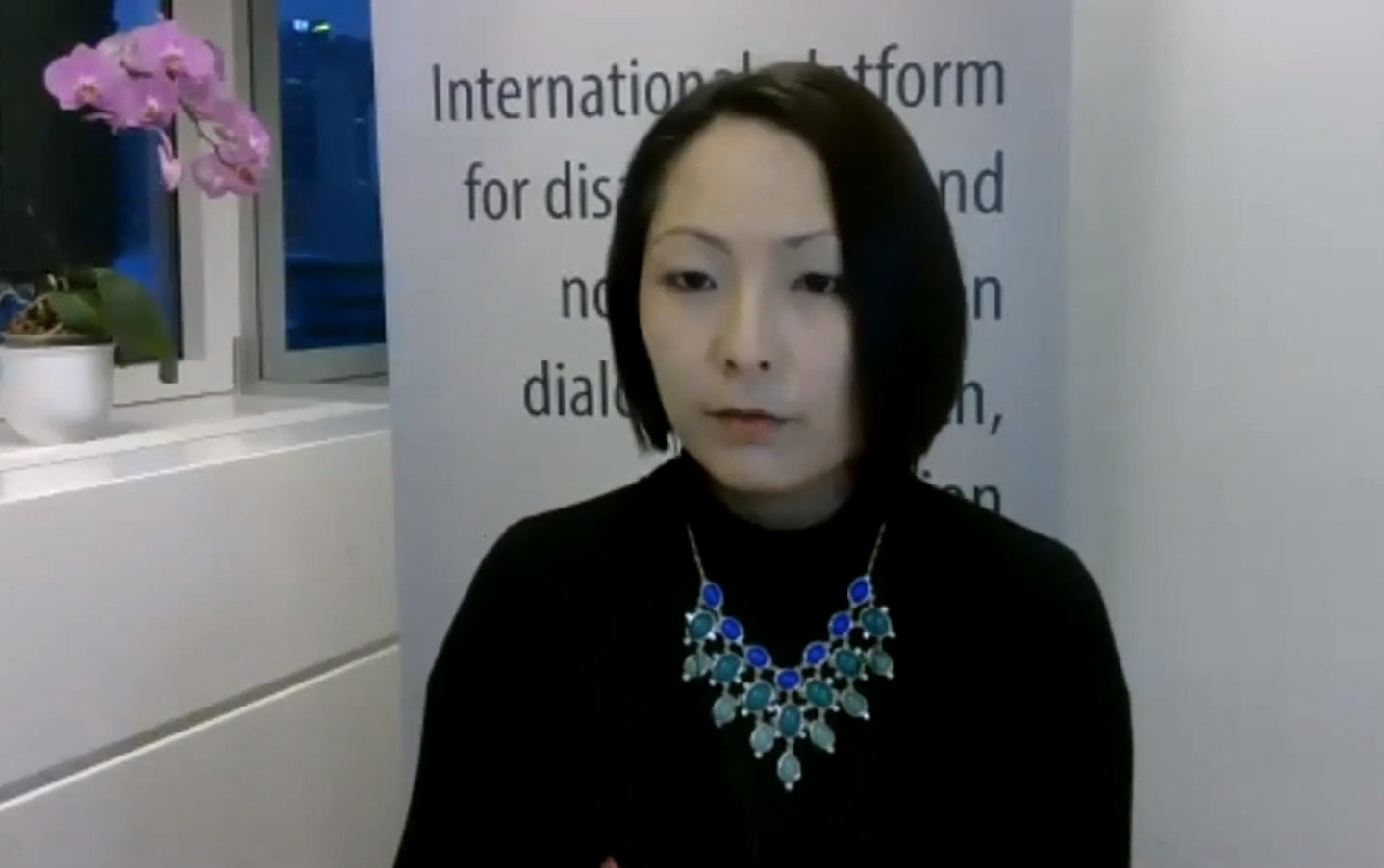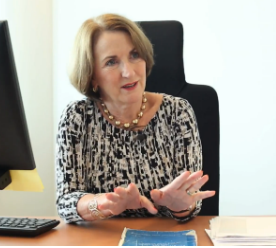

In their new videocast, Machiavelli in the Ivory Tower, our VCDNP Senior Research Associate Dr. Hanna Notte and Sarah Bidgood, CNS, and their guests discuss arms control, nonproliferation, and international security issues—topics that have leapt to the forefront since Russia’s invasion of Ukraine in February.
Sarah Bidgood says she and Hanna Notte came up with the idea of a monthly videocast last year as a way to further the educational mission of CNS, where Bidgood is the director of the Eurasia Nonproliferation Program and Notte is a senior nonresident scholar. Their goal was to “bring together cutting-edge policy research in the social sciences with events that are happening in the real world.”
Bidgood’s work at CNS focuses on past U.S.-Soviet and current U.S.-Russia nonproliferation cooperation, as well as the international nonproliferation regime more broadly. Notte is a Senior Research Associate at the Vienna Center for Disarmament and Non-Proliferation. She studies arms control and security issues involving Russia and the Middle East, their intersection, and the implications for U.S.-European strategy and policy.
Notte says neither she nor Bidgood started out in arms control and proliferation, so they understand how opaque these topics may seem. “It can be a little bit frightening, feeling like you cannot fully understand all the debates, the regimes, the technical issues, because it is a niche.” The videocast, she hopes, will “take some of that fear away and make what we work on and debate in that space digestible and intelligible to a larger audience.”
The series launched on January 26 with “Nuclear Doctrine and the Law of Armed Conflict: A Conversation with Professor Scott Sagan.” Sagan, a political science professor at Stanford University and senior fellow at Stanford’s Center for International Security and Cooperation, is an expert in nuclear strategy, ethics and war, public opinion about the use of force, nuclear nonproliferation, and the safety of hazardous technology. He talked with Notte and Bidgood about ethical and legal concerns surrounding nuclear doctrine, its complicated relationship to the law of armed conflict, and the dangers of “siloing” legal and strategic studies.
On February 24, Russian president Vladimir Putin ordered his military to invade the neighboring country of Ukraine. He warned other military powers, including the United States, that any effort to interfere on Ukraine’s behalf could result in Russian retaliation, “and it will lead you to such consequences that you have never encountered in your history.” This provocative statement, along with other Russian displays of nuclear preparedness, put the world on alert.
Notte and Bidgood found themselves fielding calls and emails from friends and family asking how real the nuclear threat was; what Russian nuclear doctrine says about these kinds of situations; and whether there was any validity to allegations that Ukraine might be experimenting with nuclear, chemical, or biological weapons. “Suddenly,” Notte says, “these kinds of questions are of relevance to a much broader audience than perhaps before. Not that these questions didn’t matter before, but we were sort of in an insulated ivory tower looking at them from a more scholarly point of view.”
Accordingly, for the second episode, Notte and Bidgood chose a topic that addressed some of the questions they had been getting: “Nuclear Weapons and the War in Ukraine—A Conversation with Dr. Mariana Budjeryn.” Budjeryn is a research associate with the Project on Managing the Atom at the Harvard Kennedy School’s Belfer Center. She talked about the circumstances under which Ukraine denuclearized in 1994 and how that relates to what is happening in the country right now, and she refuted Russia’s spurious claims that Ukraine is developing nuclear capabilities.
Bidgood says the war in Ukraine will continue to shape the direction the videocast takes. “We’re thinking about two levels at which this podcast is operating: one of them is what’s happening in scholarship and one is what’s happening in the real world. And now that the frame of what’s happening in the real world has shifted, it will inform the kinds of guests we bring onto the show.”
Given that so much has changed in the world since they first planned Machiavelli in the Ivory Tower, the two have had to reconsider whether six episodes will be enough to address all the matters the war in Ukraine is raising. Notte says probably not. “I think—coming back to the broader audience—that an interest in these kinds of issues will only grow. So I would think that we’ll continue.”
An audio version of Machiavelli in the Ivory Tower is available on the Nonproliferation Monterey YouTube channel.
This article first appeared in the MIIS News Stories and was written by Jessie Raymond.

